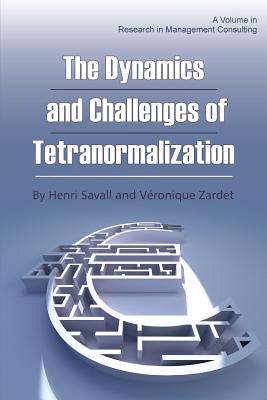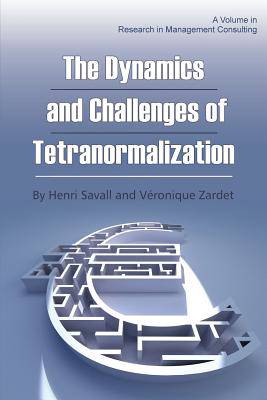
- Retrait gratuit dans votre magasin Club
- 7.000.000 titres dans notre catalogue
- Payer en toute sécurité
- Toujours un magasin près de chez vous
- Retrait gratuit dans votre magasin Club
- 7.000.0000 titres dans notre catalogue
- Payer en toute sécurité
- Toujours un magasin près de chez vous
The Dynamics and Challenges of Tetranormalization
Description
This volume continues the collaboration between the RMC book series and the French management research think tank ISEOR (Socio-Economic Institute for Firms and Organizations). Those familiar with Henri Savall's and his colleague Véronique Zardet's earlier work on the socio-economic theory of organizations will recognize their assessments of organizational dysfunctions and hidden costs - but in a different context. In their current work, the emphasis is on the tensions created by the wider environment - the idea of tetranormalization - and how those tensions shape and influence organizational life. Drawing on a wide range of examples from the news media and popular press, Savall and Zardet paint a disturbing picture of the underlying dynamics and challenges posed by a literal avalanche of standards and norms - which are often ambiguous and conflicting - that literally encompasses all that we do.
Their analytic framework is composed of four "poles" - two social dimensions and two economic dimensions - that capture social norms and quality, safety and environment standards (the social dimension), and trade-related norms and accounting and financial standards (the economic dimension). Throughout the volume, Savall and Zardet's analysis captures the myriad ways in which these dimensions interact, shaping the "rules of the game" that dictate how organizations compete and collaborate. Differentiating the "rules of the game" from "playing with" those rules, they delve into the subtleties and nuances that underlie these "poles," providing further insight into how these forces are manipulated through lobbying and the seemingly 24/7 cycle of exposing, publicizing and rule-making surrounding social and economic as well as scientific and technological controversies.
As Savall and Zardet argue, we are in the midst of a profound upheaval that will play havoc with our economic and social lives for some time to come. If we are going to exert influence on that reality, the challenges that we face moving forward must be conceptualized, constructed and implemented today, for, as they argue, "the road to durable prosperity will be a long haul." Yet, moving beyond these challenges per se, they underscore that we are also presented with an exceptional opportunity - the very real opportunity to create a sustainable commitment to responsible and responsive organizational performance, one that can be fuelled and financed by our ability to translate the hidden costs that exist in all our organizations into productive, value-added activities and true wealth creation. Their analysis presents an intriguing challenge to traditional notions of corporate social responsibility, delving into the idea of "durably acceptable" responsibility, ways to facilitate greater stakeholder engagement, and how we can capture ongoing and sustainable improvement in organizational performance.
Spécifications
Parties prenantes
- Editeur:
Contenu
- Nombre de pages :
- 250
- Langue:
- Anglais
- Collection :
Caractéristiques
- EAN:
- 9781623962807
- Date de parution :
- 05-03-13
- Format:
- Livre broché
- Format numérique:
- Trade paperback (VS)
- Dimensions :
- 156 mm x 234 mm
- Poids :
- 353 g

Les avis
Nous publions uniquement les avis qui respectent les conditions requises. Consultez nos conditions pour les avis.





